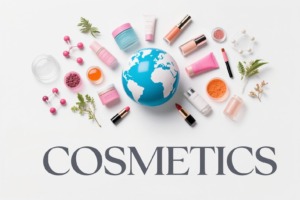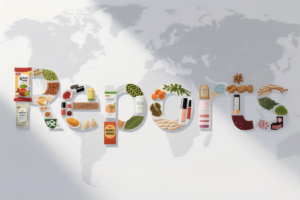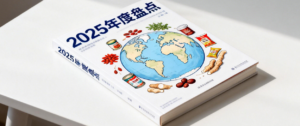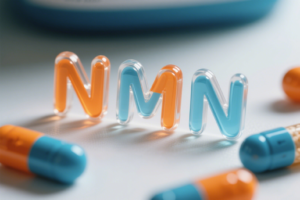+86 571 8659 2517
+86 180 5841 8258
info@zmuni.com

Imports of cosmetics in China reached $16.18 billion, marking a mild 0.9% year-on-year decline—the smallest drop since imports entered a negative growth cycle in 2022 and a significant improvement from the 9.0% contraction in 2024. Import Slump Eases Significantly, Domestic Market Warms Up China's cosmetics imports have been in a sustained negative growth phase since 2022, with declines of 10.6%, 19.4% and 9.0% in 2022, 2023 and 2024, respectively, resulting in a total reduction of $8.55 billion over the three years. Although still in negative territory, the marginal 0.9% decline in 2025 signals a clear stabilization and recovery

As global regulatory frameworks for cosmetics and food continue to evolve, companies are facing increasingly detailed requirements around ingredient safety, scientific assessment, and market access. Keeping pace with these changes has become an essential part of everyday regulatory and compliance work. Throughout 2025, ZMUni Compliance Centre has closely tracked regulatory developments across China and major international markets, while continuing to support clients through practical compliance consulting and project-based regulatory services. Alongside this work, we have also continued to share regulatory updates and practical insights through our website, industry events, and professional communication channels. Based on this ongoing monitoring and

Innovation in food ingredients continues to drive growth in the global food industry. This article provides a comprehensive overview of China's new food ingredient landscape in 2025. Based on multi-dimensional data analysis, it aims to help global companies strategize for the Chinese food ingredient market in 2026. I. Overview of New Food Ingredient Applications in China (2025) As of December 31, 2025, China's National Health Commission (NHC) accepted 53 applications for new food ingredients, marking a record high in recent years. This growth reflects both supportive regulatory policies and sustained innovation efforts by industry players. Applications by Origin Of the

Nicotinamide mononucleotide (NMN) has long attracted global attention as a promising ingredient in health supplements and functional foods, due to its potential role in supporting cellular metabolism, healthy aging, and overall well-being. In recent weeks, key regulatory developments driving in major markets have brought clarity to NMN's legal status, creating new opportunities for the supplement industry. United States: FDA Restores NMN's Dietary Supplement Status On December 9, 2025, the U.S. Food and Drug Administration (FDA) published a response letter on Regulations.gov, addressing submissions by Chinese company SyncoZymes (Shanghai) Co., Ltd. regarding β-nicotinamide mononucleotide (NMN). *Image source: Regulations.gov The

The global online cosmetics market is estimated at USD 22.02 billion in 2025 and is expected to reach USD 30.81 billion by 2030, growing at a CAGR of 6.95%. Asia-Pacific is the fastest-growing region, while North America remains the largest market. Most online sales occur through third-party retailer platforms (95% in 2024), though company-owned platforms are also expanding. This growth is fueled by personalization, virtual try-ons, convenience, social media influence, and rising demand for premium and organic products. Given this rapid expansion, understanding and navigating the regulatory landscape is crucial for brands seeking to sell cosmetics internationally. This article provides a

Earlier this year, the Shanghai Medical Products Administration fined a foreign cosmetic registrant whose designated Domestic Responsible Person (DRP) failed to assist in adverse event monitoring and product recalls. This case highlights a crucial reality for overseas brands entering China: the China RP is not just a formal contact — it is the legal "first responder" for compliance and product safety, bearing direct administrative liability under Chinese law. Understanding the obligations and risks associated with this role is essential for any foreign brand seeking a smooth and compliant entry into the Chinese market. What Is a "Domestic Responsible Person" in China?

Global Cruelty-Free Trend and China's Regulatory Evolution The cruelty-free movement has been shaping the cosmetics industry worldwide for decades. Regions such as the EU and Canada have fully banned animal testing for cosmetics, while several US states have introduced similar prohibitions. In 2025, Brazil also announced a comprehensive ban, reflecting growing global momentum toward ethical, cruelty-free innovation and rising consumer demand for animal-friendly products. Historically, China required animal testing for imported cosmetics, which deterred many overseas brands from entering its large market. However, China has been actively aligning with international standards. On September 19, 2025, the National Medical Products

Probiotics are a well-established segment in the global health and nutrition market, widely used in supplements, functional foods, beverages, and snacks. Overseas markets such as Europe, the United States, Japan, and South Korea have long recognized the health benefits of probiotics, with consumers seeking gut health, immune support, and other functional benefits. This article gives an overview of the probiotic market and its compliance requirements in China. 01 China's Rapidly Growing Probiotic Market In recent years, China's probiotic market has also experienced rapid growth. Although the industry started relatively late — in the late 1990s — strong policy support, growing
+86 571 8659 2517
+86 180 5841 8258
info@zmuni.com